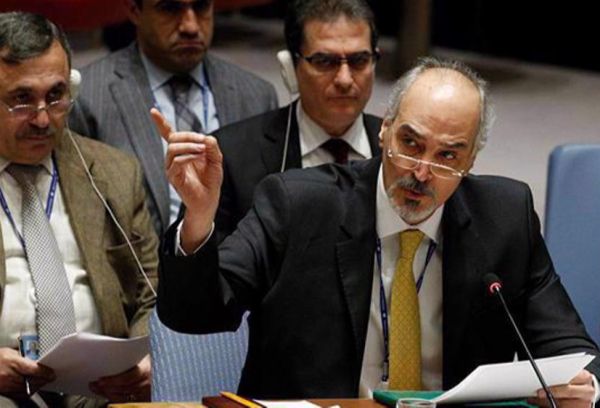
Syria’s top diplomat at the United Nations has reiterated his country’s determination to retake the occupied Golan Heights from the Israeli regime. Bashar al-Jaafari, the permanent ambassador of Syria to the United Nations, slammed the U.S. administration’s policies on the occupied Golan, and said they are no different from British colonialism.
He pointed to the Israeli prime minister’s move to name an illegal settlement in Golan after U.S. President Donald Trump, and said the move is part of an Israeli-American occupation. “We believe in the power and capability of our people in the occupied Golan to confront Israel,” Jaafari said, speaking to the Lebanese TV channel al-Mayadeen on Wednesday.
He expressed the Damascus government’s support for Golan residents, stressing that the Syrian government is resolved to use all the channels secured by the international law in order to liberate the occupied territory of Golan.
The top diplomat said his country has already submitted “very important” letters to the UN and its Security Council on Tel Aviv’s moves in the occupied Golan Heights, and that his country speaks the language of law and logic at the United Nations.
In 1967, Israel waged a full-scale war against Arab territories during which it occupied a large swathe of Syria’s Golan Heights and annexed it four years later, a move never recognized by the international community.
Syria has repeatedly reaffirmed its sovereignty over the Golan Heights, saying the territory must be completely restored to its control. In March 2019, U.S. President Donald Trump signed a decree recognizing Israeli “sovereignty” over Golan during a meeting with Israeli Prime Minister Benjamin Netanyahu in Washington.
In their latest unlawful move, Israeli forces have closed a number of the main entrances to the villages in the occupied Golan Heights, barring the locals from reaching their farms, where the Tel Aviv regime wants to set up wind turbines.
Syria’s official news agency, SANA citing an unnamed local source, announced the news on Monday, adding that crowds of locals in rural areas of Majdal Shams, Sheita and Baqaatha, and Masada were gathering on the blocked roads leading to their farms.
The source added that Israeli soldiers were present in the areas in large numbers and had already cut off the main roads there.
 Escambray ENGLISH EDITION
Escambray ENGLISH EDITION





Escambray reserves the right to publish comments.